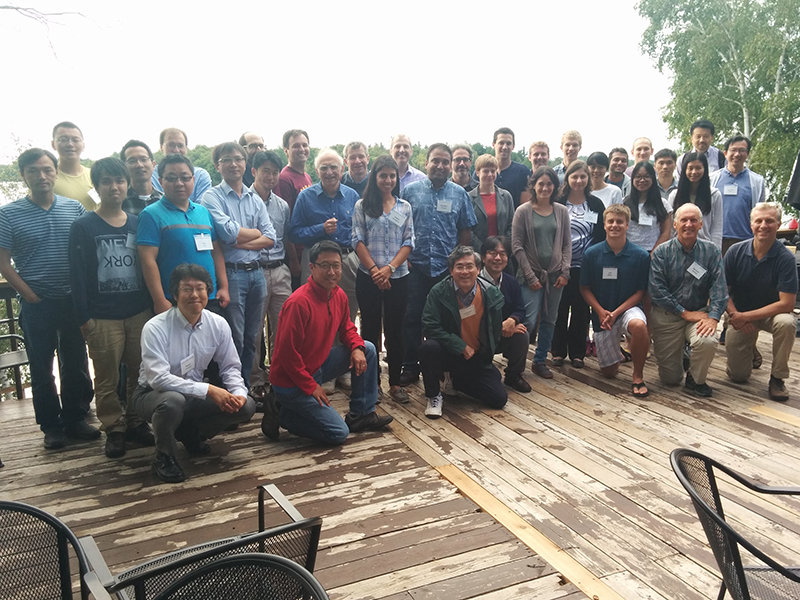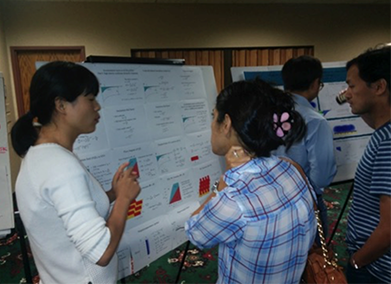From September 7 – 10, 2016, numerous IRG-1 faculty, students, and post-docs took part in the UMN MRSEC-sponsored “FET2016” workshop, focusing on the latest advances in field-effect control of materials, particularly via electrolyte gating. The workshop was the most recent in a series that have highlighted cutting-edge advances in field effect transistors based on organic semiconductors, 2D materials, and oxides. These workshops have traditionally placed a heavy emphasis on electrostatic control of materials, especially ionic liquid/gel gating, overlapping strongly with the main focus of IRG-1.
Over the course of four days the 39 attendees heard from 20 invited speakers from across the US, Europe, and Asia. Topics varied from an overview and history of electrolyte gating (Prof. Yoshi Iwasa, Tokyo), to the latest advances in electrolyte control of 2D materials (e.g., Prof. Alberto Morpurgo, Geneva), to organic electronics (e.g., Prof. Marta Mas-Torrent, Barcelona), to gated oxide heterostructures (e.g., Prof. Harold Hwang, Stanford). In all, seven countries were represented by the invited speakers, who visited from the US, Japan, Switzerland, France, Germany, Spain, and China, to exchange information and ideas at the very edge of knowledge in the field. Eighteen students and post-docs also presented their research in the workshop’s poster sessions, including 15 local participants from the University of Minnesota, from both IRG-1 and -2.
IRG-1 faculty Dan Frisbie and Chris Leighton served as local organizers for the event, working with Prof. Jana Zaumseil of Heidelberg University, Germany. The workshop was supported by the University of Minnesota MRSEC, the Krupp Foundation, and Lakeshore Cryotronics, and took place at Ruttger’s Lodge on Bay Lake in the Brainerd Lakes region of central Minnesota.

FET2016 Workshop Participants

Student/post-doc poster sessions, featuring UMN and international students
UMN MRSEC
435 Amundson Hall, 421 Washington Ave. SE, Minneapolis, MN, 55455
P: 612-626-0713 | F: 612-626-7805